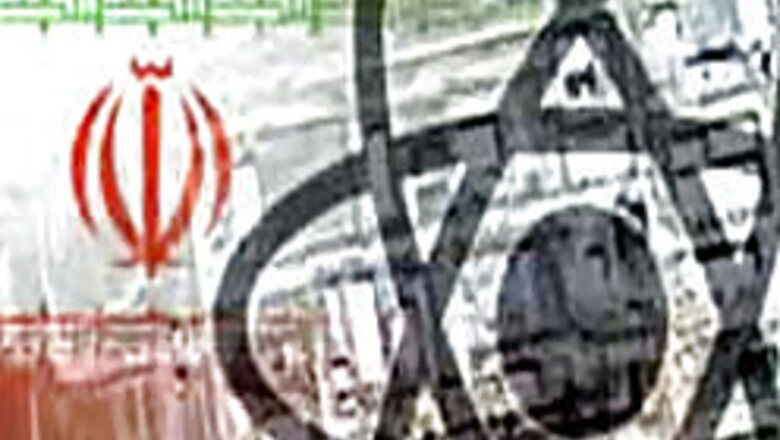
views
Vienna: Iran has confirmed it has restarted the enrichment of uranium and vowed it would not back down on its nuclear fuel research activities despite a mounting international crisis.
"In line with the parliament law, the president ordered work to resume (at the Natanz enrichment facility)," said Javad Vaidi, a member of Iran's Supreme National Security Council.
He said it was 'unacceptable' for Iran to halt its research on enrichment, a process which makes reactor fuel but can be extended to make the core of a nuclear weapon.
The move comes as Iranian President Mahmoud Ahmadinejad insisted his country was not worried about possible sanctions and Tehran said talks in Moscow aimed at finding a compromise to the long-running international standoff would not go ahead as planned later this week.
Uranium enrichment is seen as a red line by the United States and European Union in the dispute over Iran's nuclear programme, as it is crucial to making atomic weapons.
Putting uranium hexafluoride (UF6) gas into centrifuges, which distill out enriched uranium, is a major escalation by Iran, and comes amid threats by the Islamic republic to withdraw from the nuclear Non-Proliferation Treaty (NPT).
In an interview published on Monday, Ahmadinejad said that nations calling for economic sanctions would lose far more than Tehran.
"I believe those who want to impose limitations on us will lose more than us," he told USA Today newspaper in an interview conducted on Saturday.
Separately, Iran said Thursday's planned talks between Tehran and Moscow on a compromise to enrich uranium on Tehran's behalf in Russia, so that it would not acquire the strategic technology, would not go ahead.
Russia, however, said talks could still be held.
The United States and EU governments fear Iran's nuclear program could hide atomic weapons development, a claim strongly denied by Tehran which says it is for strictly peaceful civilian nuclear power.
Iran had earlier Monday said it would resume uranium enrichment even before the UN watchdog International Atomic Energy Agency (IAEA) meets in Vienna next month to decide whether to recommend UN Security Council action.
Meanwhile, French Prime Minister Dominique de Villepin arrived in Moscow for a 24-hour visit due to include talks with Russian President Vladimir Putin.
Villepin said in an interview published on Monday in a Russian newspaper that the international community was willing to negotiate with Iran on the nuclear crisis if Tehran took steps to end the standoff.
But diplomats' comments in Vienna appear to show Iran is following through with its threat to carry out enrichment.
"Iran has put gas into centrifuges at its pilot enrichment plant in Natanz," one diplomat said.
The diplomat, who asked not to be named due to the sensitivity of the issue, said Iran had not yet fired up the whole 164-centrifuge cascade but had "over the past two or three days" started work with some centrifuges.
A second diplomat said Iran was doing 'preliminary work' with 'stand-alone' centrifuges, almost certainly putting uranium gas into single machines rather than a whole cascade.
The diplomat said this was necessary in a step-by-step approach involving first getting centrifuges running, then operating a pilot plant, which Iran has dubbed research work, and then moving on to industrial-scale enrichment with thousands of centrifuges.
Iran says it wants to produce low enriched uranium, which is not refined enough for weapons.
But it wants to install over 50,000 centrifuges at Natanz, an array which could produce enough highly enriched uranium every two or three weeks for one atom bomb.
IAEA inspectors are Tuesday to visit Natanz, where Iran is threatening to remove surveillance seals and cameras, diplomats said.
But one diplomat said some seals and surveillance cameras would remain in place as they would be monitoring the production of nuclear fuel rather than enrichment.
Although Iran had suspended uranium enrichment work until talks with an EU negotiating troika broke down last month, it has since August been making the feedstock UF6 at a conversion plant in Isfahan.



















Comments
0 comment